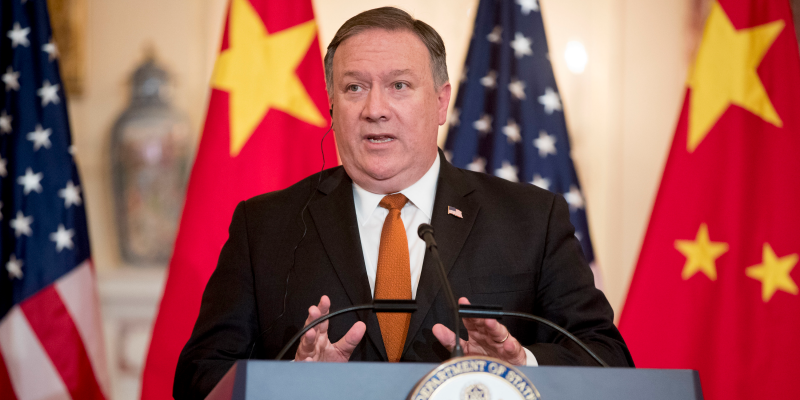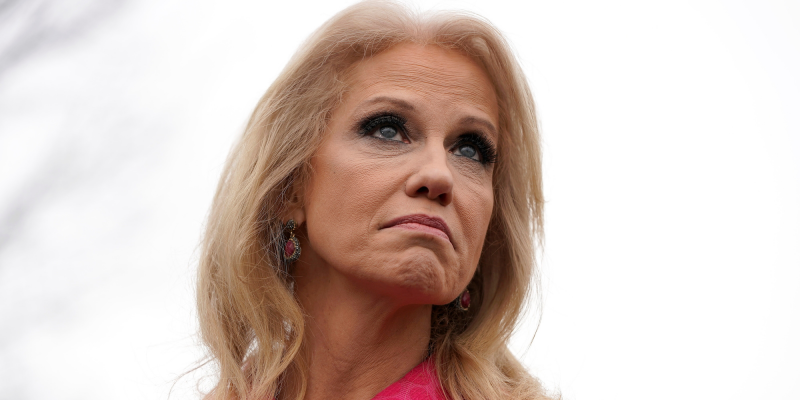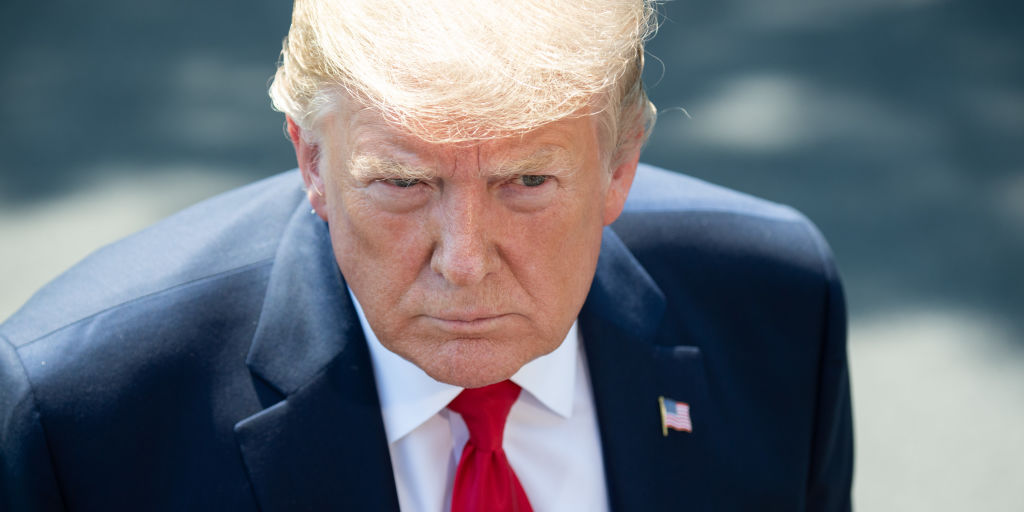- President Donald Trump announced on Twitter and to reporters that he would target and attack Iranian cultural sites if the country retaliated against the US for assassinating its top general, Qassem Soleimani.
- Deliberately targeting a cultural heritage site with no military value is a violation of international law and constitutes a war crime if carried out.
- But over the past two days, Trump’s advisers and cabinet officials have bent over backward to argue that he didn’t threaten to commit a war crime, despite his public statements indicating the opposite.
- Secretary of State Mike Pompeo and the counselor to the president, Kellyanne Conway, contradicted themselves and Trump in recent days while defending his announcement.
- CNN reported that multiple senior US officials were strongly opposed to what Trump suggested, with one official telling the outlet, “As a matter of principle, we as a nation and as a military do not attack the culture sites of any adversary.”
- Visit Business Insider’s homepage for more stories.
President Donald Trump announced on Twitter over the weekend that if Iran retaliated against the US for assassinating its top military general, Qassem Soleimani, the US would respond by attacking 52 Iranian sites, including cultural ones, “VERY FAST AND VERY HARD.”
After initially backing down from his comments following swift backlash and allegations that he was advocating a war crime, Trump doubled down while talking to reporters on Air Force One.
“They’re allowed to kill our people. They’re allowed to torture and maim our people. They’re allowed to use roadside bombs and blow up our people,” he said. “And we’re not allowed to touch their cultural site? It doesn’t work that way.”
Targeting cultural sites with no military value violates international law and multiple treaties.
A 2017 UN resolution "condemns the unlawful destruction of cultural heritage, including the destruction of religious sites and artifacts."
The UN has also made it clear that carrying out such measures amounts to a war crime.
"The deliberate destruction of our common cultural heritage constitutes a war crime and represents an attack on humanity as a whole," a representative for then-UN Secretary-General Ban Ki-moon said in 2015.
The president's top advisers and cabinet officials, however, are bending over backward to argue that he didn't threaten to commit a war crime and is acting in accordance with international law, despite his tweets and public statements indicating the opposite.

Pompeo claimed he wasn't arguing '2 different things,' while arguing 2 different things
During an interview with CNN's Jake Tapper on "State of the Union," Secretary of State Mike Pompeo beat around the bush when Tapper asked him whether the US was really "preparing to hit nonmilitary, cultural targets in Iran, which would obviously - possibly - result in civilian threats and almost certainly violate a UN resolution that the US voted for in 2017?"
Pompeo replied that what Trump tweeted was "consistent" with the US's position "all along."
"We will be bold in protecting American interests," he said, adding that they would do so in a way "that is consistent with the international rule of law and the American Constitution."
Tapper pushed back and told Pompeo he was "saying two different things."
"President Trump's threat ... centers of interest to the Iran culture would not be in accordance with international law, so which is it?" Tapper pressed.
"Jake, they're not two different things," Pompeo said. "The American people should know that we will not waver. We will be bold in protecting American interests ... we've always done that, Jake, and President Trump's tweet doesn't deviate from that one iota."
"So cultural centers are theoretically fair targets, in your view?" Tapper pressed.
"Jake, we're going to do the things that are right and the things that are consistent with American law," Pompeo said.
Asked about Trump's comments during another appearance on NBC's "Meet the Press," Pompeo again argued, "Our responses are lawful … the president will take every action necessary to respond should Iran decide to escalate."

Kellyanne Conway claimed Trump 'didn't say he's targeting cultural sites' before acknowledging he 'identified those sites and said it may happen'
On Monday, the counselor to the president, Kellyanne Conway, stepped in to defend the president and argue he didn't say what the public heard him say, before acknowledging that he did say it.
"He didn't say he's targeting cultural sites," Conway said. "He said that he was openly asking the question why in the world they're allowed to maim people, put out roadside bombs, kill our people, torture our people ... he said that they identified 52 sites."
She later added that Trump had "identified those sites and said it may happen if Iran retaliates in a certain way."
CNN reported that multiple senior US officials were strongly opposed to targeting and attacking Iranian cultural sites.
"Nothing rallies people like the deliberate destruction of beloved cultural sites. Whether ISIS's destruction of religious monuments, or the burning of the Leuven Library in WWI, history shows targeting locations giving civilization meaning is not only immoral but self-defeating," one of the officials told CNN.
"Consistent with laws and norms of armed conflict, we would respect Iranian culture," a second senior US official said.
A third official who previously worked under both Trump and Barack Obama, told the outlet, "As a matter of principle, we as a nation and as a military do not attack the culture sites of any adversary."

